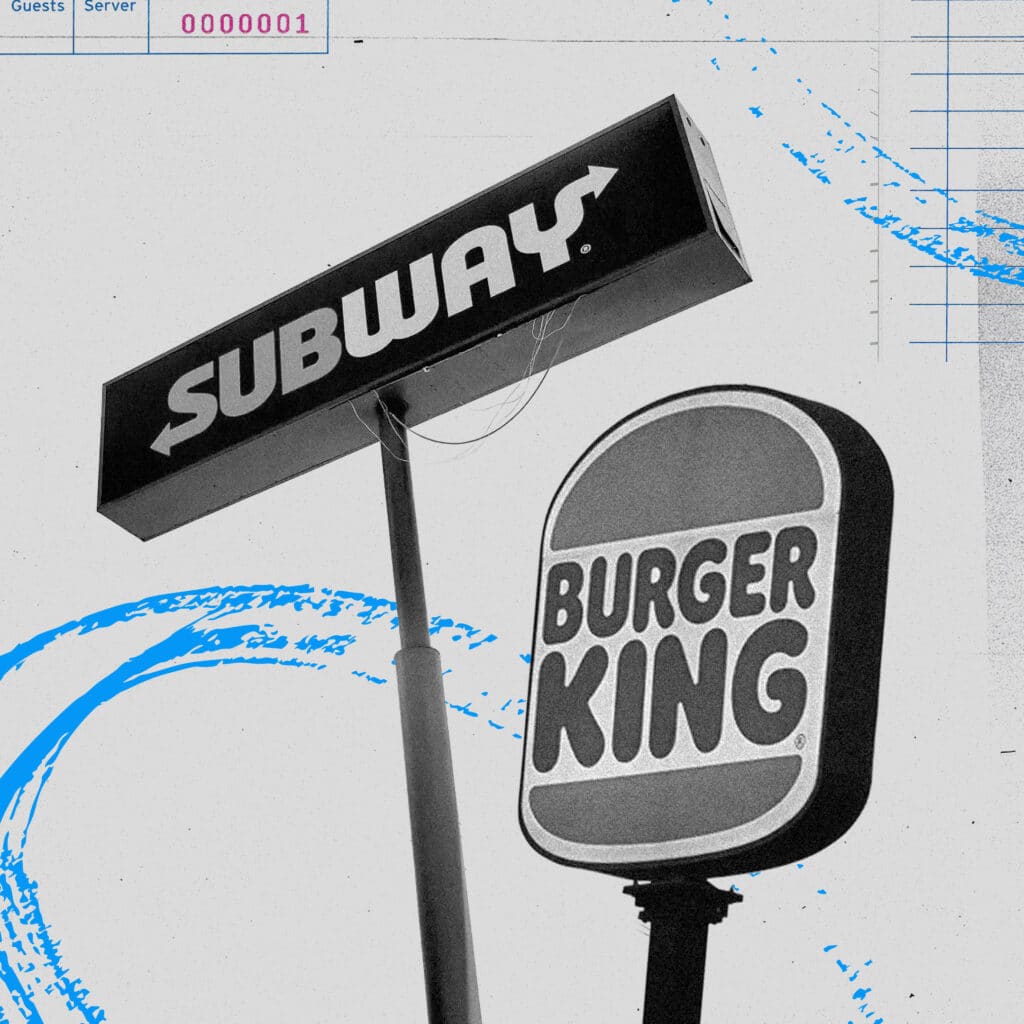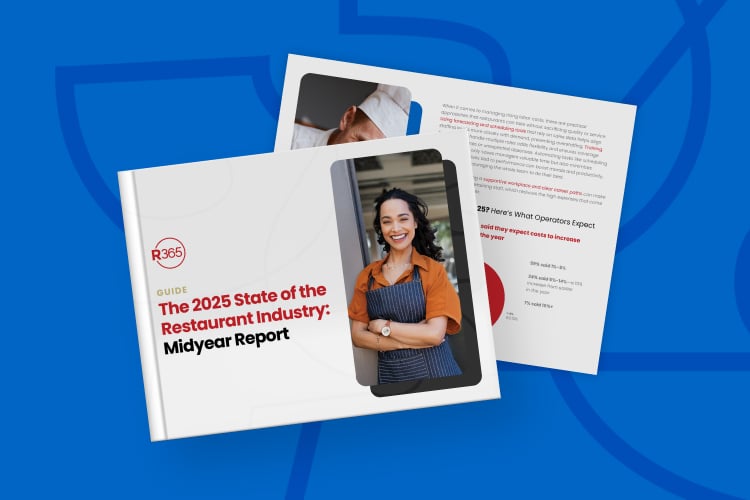As a seasoned accounting or finance leader, you know that restaurant accounting is unique. But do your restaurant bookkeepers know the ins and outs of restaurant accounting?
To ensure they’re the very best they can be at their jobs, it’s important that restaurant bookkeepers understand how restaurant accounting differs from accounting in other industries. If they’ve come from a manufacturing or retail accounting background, for example, restaurant accounting may seem foreign to them. And it’s critical that they know the big picture, so they can effectively perform their restaurant bookkeeping duties.
And, who’s better equipped to teach them than you?
Give your restaurant bookkeepers the 411 on accounts payable
Take accounts payable, for instance. As entry-level members of your team, your restaurant bookkeepers are most likely responsible for the accounts payable process – from manually entering vendor invoices into your accounting system, to tracking down approvals, and making payments.
Obviously, the importance of accuracy in entering invoices is lesson #1 since their mistakes become a time waster for you down the line. But, as they enter invoices, your restaurant bookkeepers also become your first line of defense in recognizing vendor errors. Let them know it’s part of their job to speak up if they find an invoice that doesn’t look right. Even if it turns out to be that the store manager ordered twice as much in proteins to cover the demand for the big game last month, having your restaurant bookkeepers watch for anomalies in invoices could prevent ongoing overpayments.
Automating the accounts payable process would help mitigate these issues as automated invoice capture, approval, and payment would minimize errors, and your software would catch errors such as vendor invoicing over the contracted cost.
Describe why accounting periods are unique for restaurants
If your restaurant bookkeepers are new to the restaurant industry, they’re probably familiar with reporting by calendar month. Consequently, you must explain to them why calendar months do not provide an apples-to-apples comparison because of the uneven number of weekend days in each month. Tell them why the optimal solution for restaurants is to set up reporting using 13 accounting periods of four weeks per year, or 4/4/5 accounting periods.
If you use the 4/4/5 calendar let them know that it divides a year into four quarters of 13 weeks grouped into two 4-week months and one 5-week month, so that you have the same number of each day in each period.
If you opt for the 13 four-week cycles because it makes comparisons of financial performance from period to period much more practical, explain why that is so. They’ll also need to understand that if you run payroll weekly or bi-weekly, a 4-week period enables you to align your labor costs with sales, thus resulting in accurate labor cost calculations. The four-week cycle eliminates the need to accrue payroll if you have a bi-weekly pay period. Your P&L statements will then reflect 28 days of actual sales and 28 days of actual payroll.
If you use a restaurant-specific accounting solution that allows you to set up 13 four-week cycles or 4/4/5-week cycles, your bookkeepers still need to understand the concept behind it.
Teach your restaurant bookkeepers how to read a restaurant P&L
Restaurant bookkeepers typically don’t have accounting backgrounds. As a one-unit restaurant adds locations, the owner/operator becomes too busy to handle the books and passes the responsibility onto an untrained member of the staff. And as the restaurant group continues to grow and hires professionals like you as a CFO or VP of accounting, these restaurant bookkeepers are still required to do basic bookkeeping tasks.
Your restaurant bookkeepers will perform their jobs more effectively if they know how their responsibilities fit into the overall business and its financial health. Helping these bookkeepers understand your restaurant P&L will not only make them more valuable to your organization but could help you retain them during the labor shortage if they know that there might be a career path for them in your organization. (This guide, designed to simplify the P&L for store-level managers, would be a good place to start teaching them how to read a restaurant P&L.)
Explain the importance of intercompany entries to your restaurant bookkeepers
Your restaurant bookkeepers are most likely responsible for entering those manual due to/from entries, but do they understand the importance of these intercompany entries or why they’re doing them? For example, do they understand why they must do multiple journal entries for a single transaction spread over multiple locations for a vendor invoice shared among several restaurant locations in the same city? If you have multiple restaurants, all of which are their own legal entities, your restaurant bookkeepers must grasp why it’s necessary to accurately track these intercompany entries.
But manual due to/from entries that your team must input individually for each restaurant are both time consuming and error prone. Impress upon them the importance of accuracy in these entries, or better yet, consider a restaurant-specific accounting system in which intercompany entries are automated, increasing accuracy and saving hours of weekly accounting time.
Clarify the need for restaurant-specific categories in your chart of accounts
A modern chart of accounts allows you to record and track food and beverage purchases in detailed accounts (e.g., seafood, chicken, beer, wine, etc.) with automated invoice coding and entry, and direct feeds of POS data. Explain to your restaurant bookkeepers how this data provides insights you need to evaluate costs and changes over time.
Give your restaurant bookkeepers a tutorial on restaurant analytics
Your restaurant group is generating data through technology like point of sale (POS) systems, restaurant management software, and staff scheduling tools, and you’re using this data to drive smart decisions. While you know the difference between restaurant reporting and restaurant analytics, your restaurant bookkeepers may not.
Bookkeepers are not at a level where they’re going to make decisions based on data, but again, seeing the big picture will make them more effective at their jobs. Explain to them that restaurant analytics goes deeper than restaurant reporting. When using analytics, you’re not just asking “what,” but you’re going deeper to answer “why?” “how?” and “what next?” Why is this important for restaurant bookkeepers to know? Because your bookkeepers become more valuable to your organization when they understand that data helps you make more informed decisions that will improve your profit margins.
You might event want to involve them in gathering restaurant data from your restaurant financial reporting software so that you can make the critical business decisions enabled by that data, without spending time collecting it.
Conclusion
Your restaurant bookkeepers are crucial to the success of your restaurant finances. While they might only execute basic bookkeeping tasks, it’s imperative that they do so accurately and efficiently. When they understand how their work affects the overall financial health of your restaurant business, they become more valuable to your organization.
If you’d like to teach restaurant accounting to your bookkeepers, a good place to start is by having them read the blog post, The Essential Guide to Modern Restaurant Accounting and the e-book, Simplifying the P&L and Other Key Metrics: A Guide for Store-level Restaurant Managers.
If you are looking to switch to a new accounting solution, consider an all-in-one restaurant management system. Restaurant365 incorporates restaurant accounting software, restaurant operations software, inventory management software, payroll + HR software, and scheduling software into a cloud-based platform that’s fully integrated with your POS system, as well as to your food and beverage vendors, and bank.



